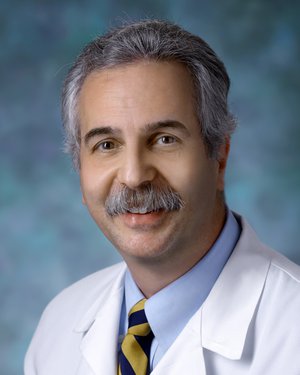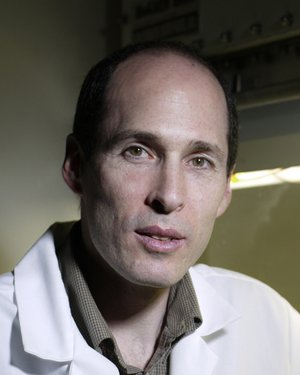Research Lab Results
-
Cardiovascular Analytical Intelligence Initiative (CV-Ai2)
Among the hundreds of predictive models developed for cardiovascular disease, less than one-tenth of 1% actually end up routinely used in clinical practice. CV-Ai2 uses data from clinical practice and analytic intelligence to solve clinical problems and create solutions that can be applied in real-world patient care.
-
The Vascularized Composite Allotransplantation (VCA) Research Lab
The Vascularized Composite Allotransplantation (VCA) Research Lab is leading research aimed at warding against rejection and reducing the number of medications patients have to take for the rest of their lives. They’re testing a protocol that involves treating the patient with antibodies on the day of transplant, followed by a donor bone marrow infusion several days later. This protocol would allow patients to be treated with low doses of a single maintenance drug after being transplanted. -
Cardiovascular Stem Cell Program
The research program aims to advance cardiovascular biology and medicine by focusing on pluripotent stem cell-based modeling and therapy and by nurturing future leaders in regenerative medicine. -
Vascular Neurology Lab
Vascular research led by Rafael Tamargo, M.D., the Walter E. Dandy Professor of Neurosurgery, explores treatment of aneurysms, arteriovenous malformations, cavernous malformations, and arteriovenous fistulas of the brain and spinal cord. Basic science research has focused on endothelial cell-leukocyte interactions (inflammation) after subarachnoid hemorrhage and identifying drugs that might inhibit this inflammatory response as well as the narrowing of blood vessels. -
Obesity Hypertension Clinic: Reversing the Negative Cardiovascular Effects of Weight (ReNEW)
Hypertension in children is a major cause of disease, including early onset heart disease. Up to 25% of children who are overweight or obese have hypertension (high blood pressure), and children with obesity are at greater risk for having other cardiovascular disease risk factors such as high cholesterol and diabetes. The ReNEW Clinic at The Johns Hopkins University provides an innovative multidisciplinary approach to the evaluation and treatment of obesity-related hypertension to help prevent and treat cardiovascular disease. This clinic is designed for children with elevated blood pressure (prehypertension and hypertension) and a BMI at or above the 85th percentile. Many children in this clinic are enrolled in a longitudinal registry to help researchers learn how to better care for children with multiple risk factors for heart disease.Read more about the ReNEW clinic: Childhood Obesity: A Focus on Hypertension
-
Paul Ladenson Lab
The Paul Ladenson Lab studies the application of thyroid hormone analogues for treating cardiovascular disease; novel approaches to thyroid cancer diagnosis and management; and the health economic analyses related to thyroid patient care.
-
Pluznick Lab
The Pluznick Lab is interested in the role that chemosensation plays in regulating physiological processes, particularly in the kidney and the cardiovascular system. We have found that sensory receptors (olfactory receptors, taste receptors, and other G-protein coupled receptors) are expressed in the kidney and in blood vessels, and that individual receptors play functional roles in whole-animal physiology. We are currently working to identify the full complement of sensory receptors found in the kidney, and are working to understand the role that each receptor plays in whole-animal physiology by using a variety of in vitro (receptor localization, ligand screening) and in vivo (whole-animal physiology) techniques. -
Post Lab
The Post Lab is involved in the Multi-Ethnic Study of Atherosclerosis (MESA), a collaborative study of the characteristics of subclinical cardiovascular disease (that is, disease detected non-invasively before it has produced clinical signs and symptoms) and the risk factors that predict progression to clinically overt cardiovascular disease or progression of the subclinical disease. As MESA researchers, we study a diverse, population-based sample of 6,814 asymptomatic men and women aged 45-84. Approximately 38 percent of the recruited participants are white, 28 percent African-American, 22 percent Hispanic, and 12 percent Asian, predominantly of Chinese descent. Participants were recruited from six field centers across the United States, including Johns Hopkins University. Each participant received an extensive physical exam to determine a number of conditions, including coronary calcification, ventricular mass and function, flow-mediated endothelial vasodilation, standard coronary risk factors, sociodemographic factors, lifestyle factors, and psychosocial factors. Selected repetition of subclinical disease measures and risk factors at follow-up visits have allowed study of the progression of disease. Participants are being followed for identification and characterization of cardiovascular disease events, including acute myocardial infarction and other forms of coronary heart disease (CHD), stroke, and congestive heart failure; for cardiovascular disease interventions; and for mortality. Wendy S. Post, MD, MS, is an associate faculty, Welch Center for Prevention, Epidemiology, and Clinical Research, Johns Hopkins University, and a professor of medicine. -
The Atlantic Cardiovascular Patient Outcomes Research Team - Atlantic C-PORT
Our research is centered on the safety, efficacy and outcomes of PCI performed at hospitals without on-site cardiac surgery. Active projects: C-PORT Randomized Studies and Registries; New Jersey Angioplasty Demonstration Project; InCar-decision support tools for performance of PCI at hospitals without on-site cardiac surgery. For more information please visit Cport.org.
-
Jeremy Nathans Laboratory
The Jeremy Nathans Laboratory is focused on neural and vascular development, and the role of Frizzled receptors in mammalian development. We use gene manipulation in the mouse, cell culture models, and biochemical reconstitution to investigate the relevant molecular events underlying these processes, and to genetically mark and manipulate cells and tissues. Current experiments are aimed at defining additional Frizzled-regulated processes and elucidating the molecular mechanisms and cell biologic results of Frizzled signaling within these various contexts. Complementing these areas of biologic interest, we have ongoing technology development projects related to genetically manipulating and visualizing defined cell populations in the mouse, and quantitative analysis of mouse visual system function.






